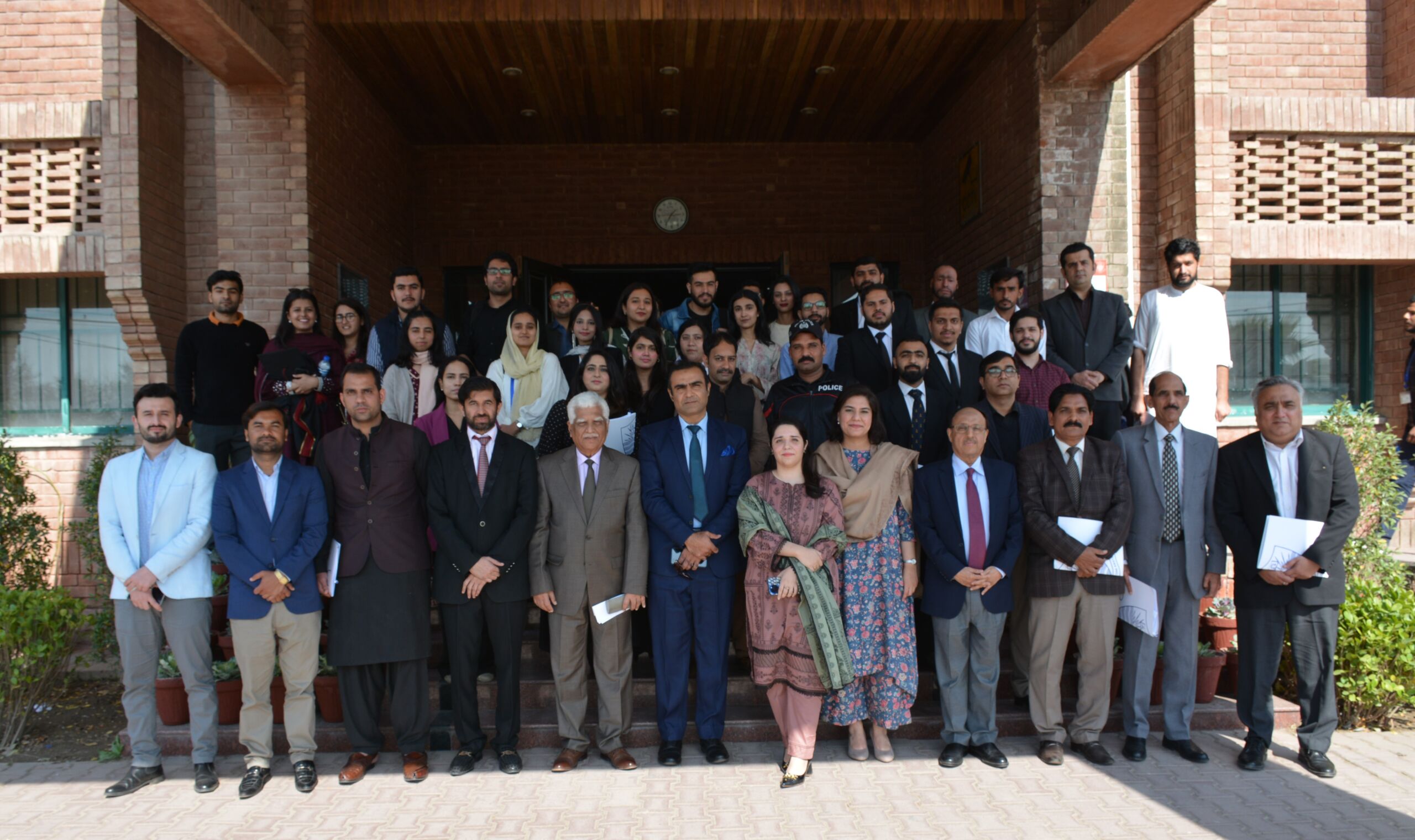
Juvenile Justice System Act 2018: Assessment, Analysis, and Capacity Building
Monograph Launch
Past Event
Feb 22, 2024 - 11:00 am |
Feb 22, 2024 - 2:00 pm
CPPG
E-002 CPPG FCCU
Upcoming Event
On February 22, 2024, the Centre for Public Policy and Governance (CPPG) hosted a monograph launch, bringing together stakeholders, experts, and policymakers to delve into the intricacies of the report titled “Juvenile Justice System Act 2018: Assessment, Analysis, and Capacity Building.”
Dr. Saeed Shafqat, Professor and Founding Director, Moderator, welcomed the guests in his opening remarks. The event served as a culmination of intensive research and collaborative efforts initiated in March 2022, when CPPG joined hands with the United States Institute of Peace (USIP) of understanding and improving the juvenile justice landscape in Pakistan. The Juvenile Justice System Act (JJSA) of 2018 was introduced in Pakistan with the noble intention of enhancing the treatment and rehabilitation of juvenile offenders. However, despite these efforts, challenges persist, as evidenced by the high rates of recidivism among young offenders. Recognizing the need for a comprehensive evaluation, CPPG and USIP undertook a rigorous examination of the JJSA’s efficacy, with a particular focus on its implementation in Punjab.
Dr. Rabia Chaudhry, Principal Investigator of the research shared the findings of the monograph report. This research project adopted a holistic three-pronged approach, meticulously analysing various facets of the juvenile justice system. Firstly, a critical evaluation of the existing legal framework was conducted, both at the national and international levels, to assess its effectiveness in safeguarding the rights of juvenile offenders. This involved a thorough review of legislation and policy documents, as well as an examination of jurisprudence and legal precedents.
Furthermore, the project delved into the strategies implemented within correctional facilities, aiming to enhance the overall quality of life for juvenile offenders and cultivate mental frameworks that mitigate the likelihood of recidivism. This aspect of the research involved extensive fieldwork, including interviews with stakeholders, observations within correctional institutions, and analysis of rehabilitation programs. Lastly, the research endeavoured to measure the success of rehabilitative approaches, emphasizing skill-building and education to facilitate the seamless reintegration of juvenile offenders into society. This involved assessing the availability and effectiveness of vocational training programs, educational opportunities, and psycho-social support services.
Throughout the event, Dr. Saeed, Dr. Rabia Chaudhary, and other esteemed speakers shared insights and reflections on the project’s findings. Gratitude was extended to the project team, stakeholders, and collaborators, including government departments, legal experts, vocational training institutes, and NGOs, for their invaluable contributions.
The event concluded with a question-and-answer session, providing an opportunity for lively discussion and exchange of ideas for future research. Dr. Shafqat expressed gratitude to Mr. Asim Raza and the representatives of USIP for their collaborative spirit and commitment to advancing juvenile justice in Pakistan.
Overall, the monograph launch event served as a platform for knowledge sharing, collaboration, and collective action towards creating a more just and equitable juvenile justice system in Pakistan.

